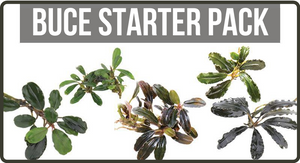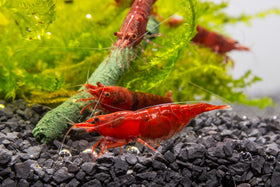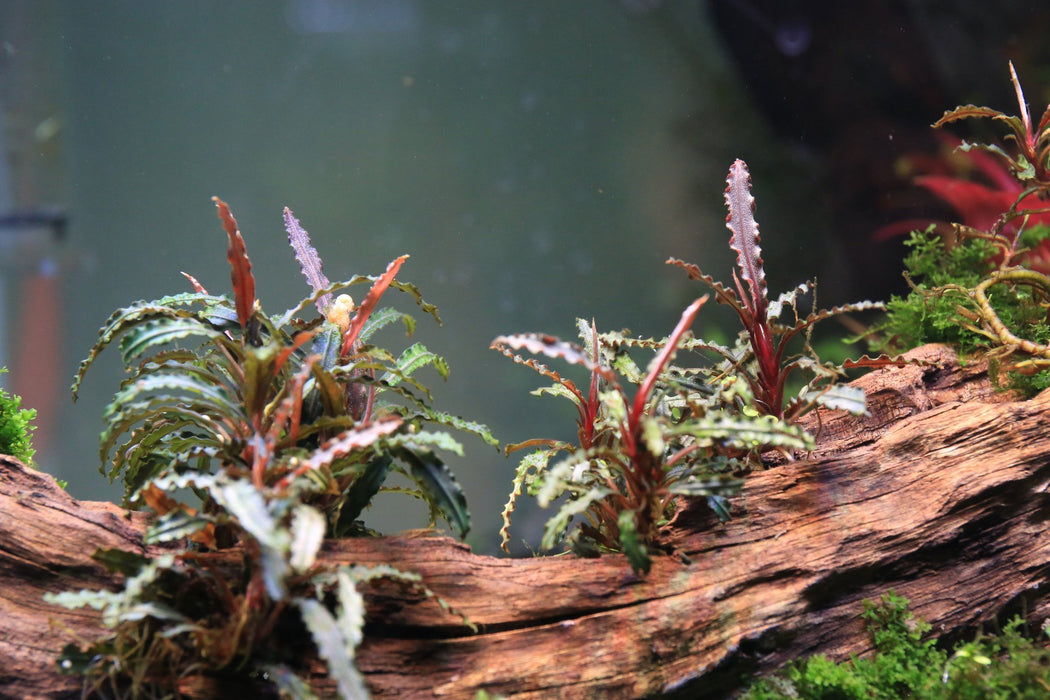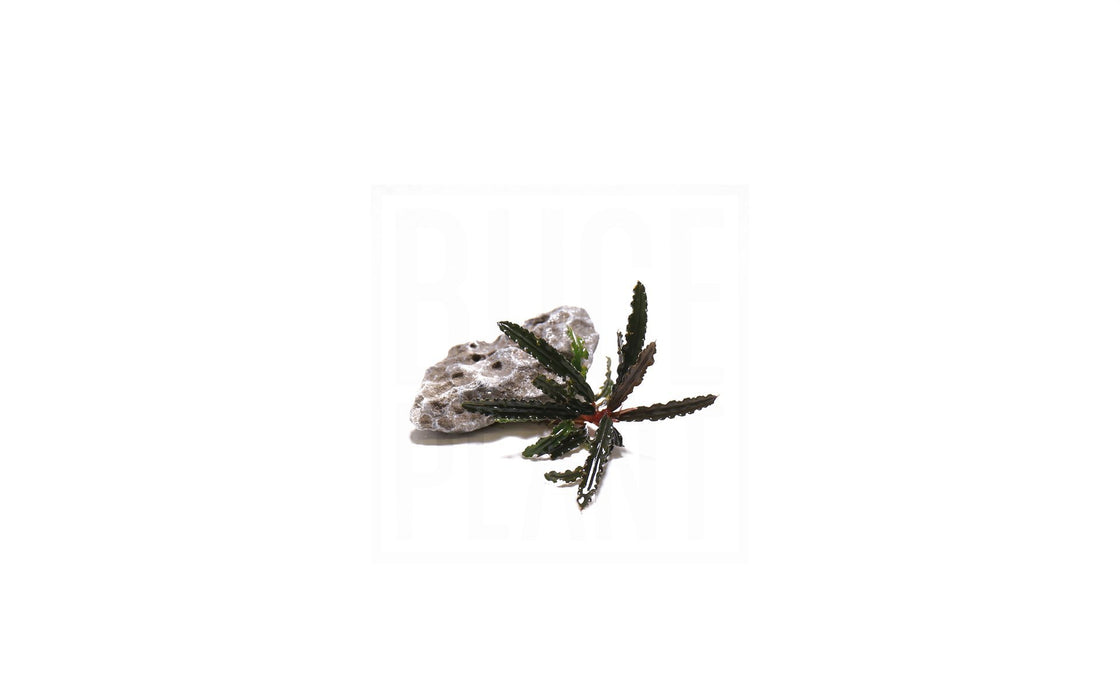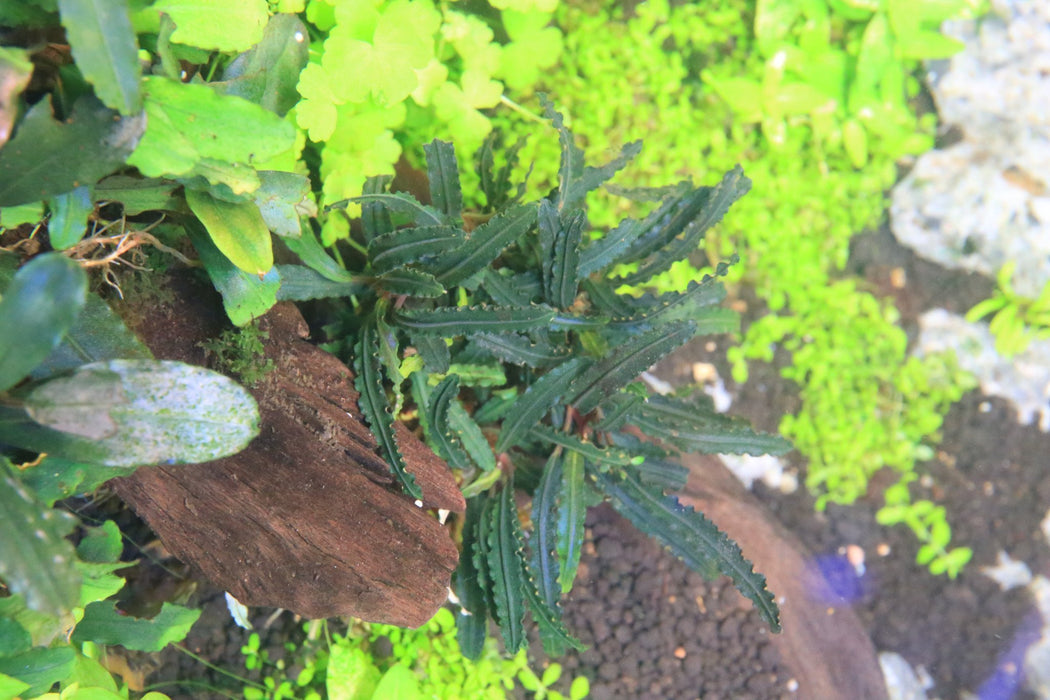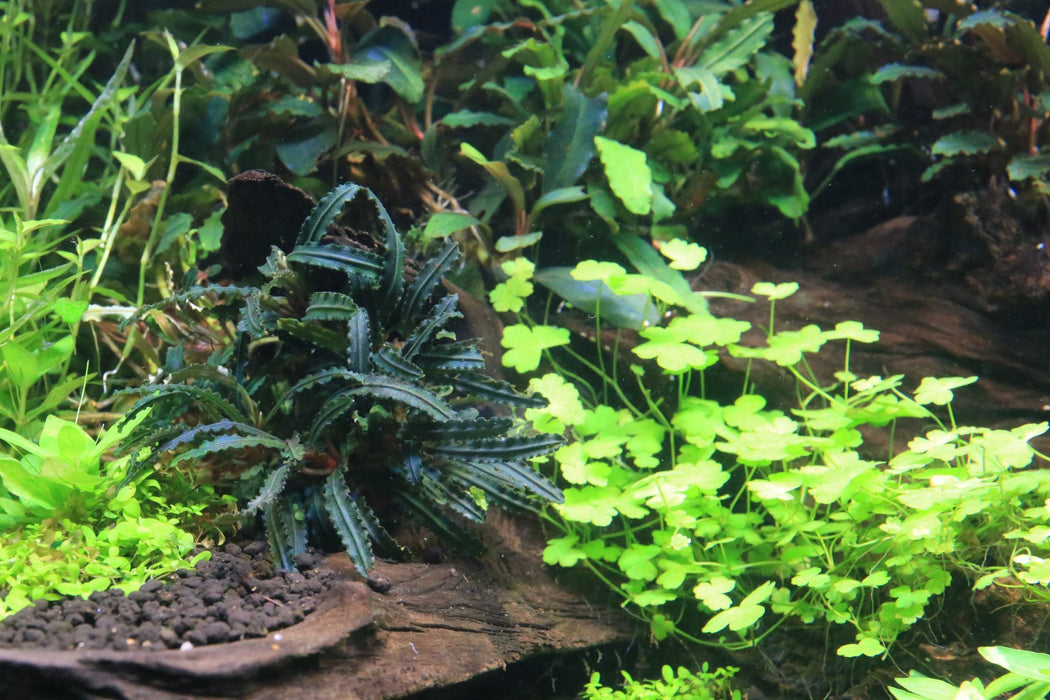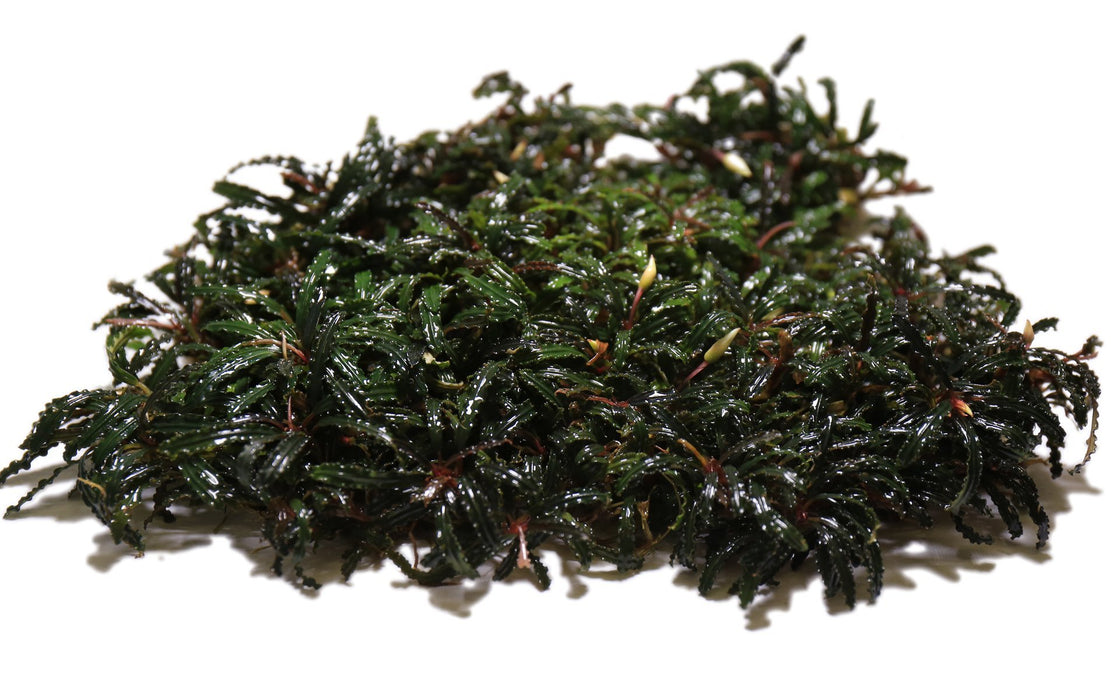
Bucephalandra Belindae
Common Name: Bucephalandra Belindae
Bucephalandra Belindae features leaves that are thin with curly edges, resembling a bush of mini palm trees. This variant ranges from light to dark green in coloration and the plant often produces flowers. All variants of Bucephalandra are very slow-growing, with new leaves sprouting from long, thin rhizomes. It can be propagated by separating the rhizome gently and attaching it to driftwood and rocks using super glue gel or thread.
It thrives under low to moderate lighting and adapts well to various water parameters. Bucephalandra can be grown submerged or emersed. Like Anubias, Buce plants have rhizomes that attach and grow on solid surfaces. While it attaches exceptionally well to rocks, it can also flourish on driftwood and other substrates. When placed in the substrate, ensure only a portion of the Buce plant is under the substrate while keeping the rhizome exposed, as burying it can lead to rot.
Key Features & Important Notes
- Bucephalandra is an epiphytic aquarium plant so it can be attached to aquarium hardscape.
- Do not plant Bucephalandra in substrate and cover the rhizome. This will cause it to melt and rot.
- Bucephalandra’s final size, coloration and growth rate are dependent upon the condition of the aquarium Photos are a representation of what you will receive and may vary.
- Do not make drastic changes to the aquarium. Unstable parameters will result in melt and rotting of the aquarium plant.
- CO2 injection will yield better growth.
Care & Additional Information
Listed information should be treated as general guidelines only. We encourage you to do thorough research before keeping any type of livestock.
Family Name: Araceae
Origin: Borneo
pH: 6-8
Skill Level: Easy
Light: Low to Medium
Co2: Not necessary but recommended
Propagation: Separate by rhizome
Growth rate: Slow

